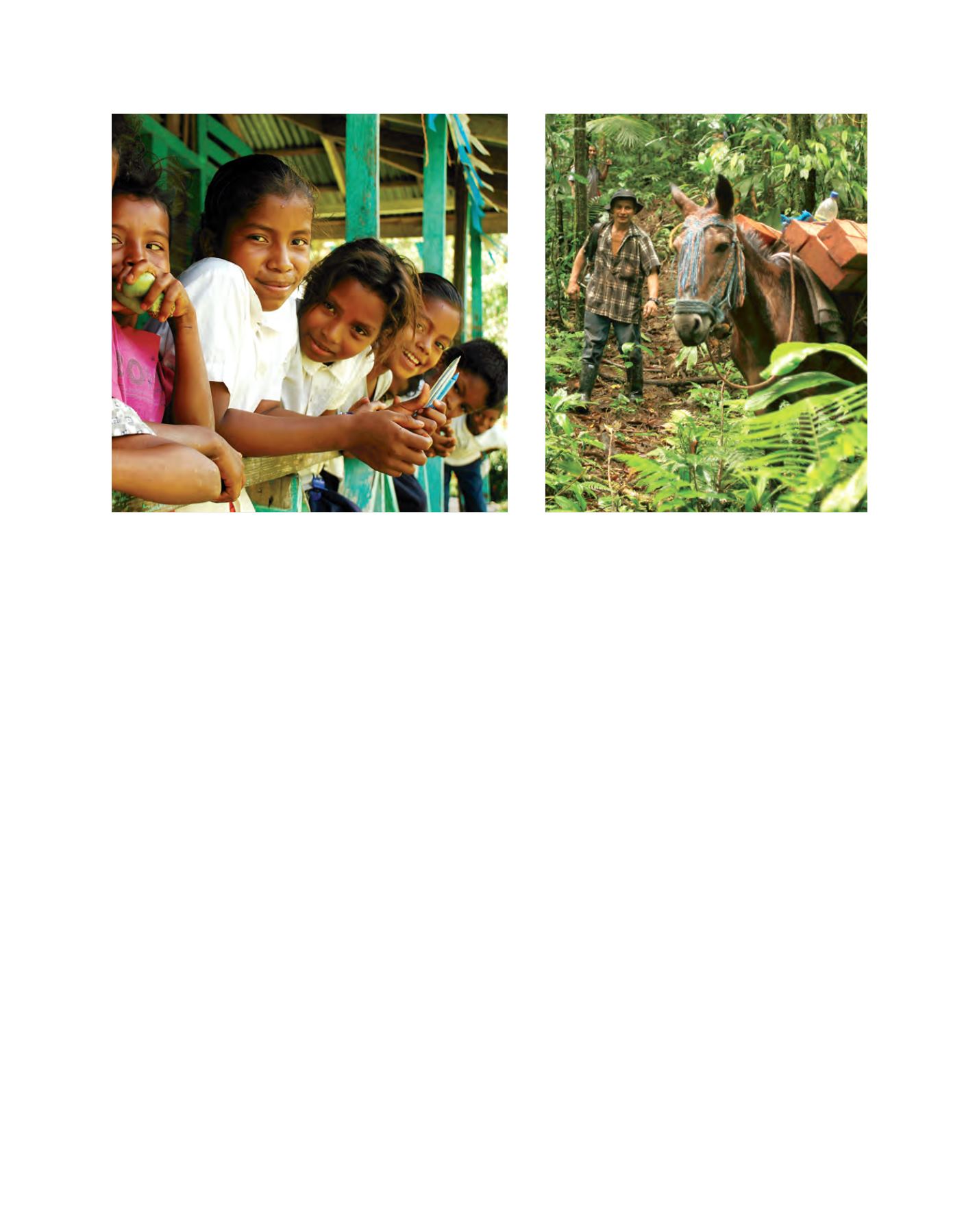

[
] 204
new jobs in forest harvesting, processing, transport and
enterprise administration have been created, increasing
household incomes and enabling other entrepreneurial
activities. Technical training in forestry, value-added
transformation to produce finished wood products, and
business and marketing skills have increased commu-
nity capacities, demonstrating the commitment to
locally-driven enterprise and economic development.
Critically, the forest itself is also being conserved: a
preliminary analysis by the Rainforest Alliance indicates
that the cooperatives are outperforming the adjacent
core zone protected area in maintaining forest cover. A
more comprehensive study is underway.
Grasping a chainsaw, Omar Antonio Rivera, of the
UNICAF-member cooperative El Guayabo, echoes the
feelings of many: “Over the years we’ve seen wildlife
move farther and farther away. We’ve seen fewer fish in
the streams because of all the hunting and fishing.” But,
says Rivera, improvements in forest management are
having an impact. “The idea is that we will see recovery
because of our good forestry work.”
Sustainable forest management clearly benefits local
community members, who rely on the forest not just
for timber but for a range of products for domestic use
and market sale. At the global scale, moreover, intact
tropical forests like those in the Río Plátano are taking
on increased importance in the struggle to reduce
greenhouse gas emissions. The rapidly growing market
for carbon credits for reducing emissions from defor-
estation and degradation (REDD) is an opportunity for
UNICAF and the cooperatives to tap into a potentially
major new revenue stream. With support from USAID,
building up processing capacity for value-added production. As of
October 2011, seven of the cooperatives covering more than 53,000
hectares had achieved Forest Stewardship Council (FSC) certification,
which ensures the sustainability of forestry practices while granting
access to preferred international markets demanding certified wood.
Formed initially as a body that would hold the FSC ‘group certifi-
cate’ for certified members, in recent years UNICAF has taken
on a number of additional functions to better serve the needs of
local forest communities. Since 2005, the union has evolved into
a second-tier enterprise that aggregates the relatively small volume
harvests of its members, achieving economies of scale and adding
value to primary wood products to cut out intermediaries and
access better markets. Increased efficiencies in forest harvesting and
improved quality in wood processing, moreover, have resulted in a
more than 100 per cent increase in annual income for the coopera-
tives, although harvest volumes remain well below allowable cuts
prescribed by management plans.
UNICAF also represents its members’ political and economic
interests and has achieved increased visibility through organizing.
Already, the union has lobbied the central Government to stream-
line processes for forest harvest permit provision and extend the
length of concession contracts to better match community and
forest management objectives. At the same time, recognizing that
a lack of funds is a major hurdle to achieving sustainable forestry
and enterprise competitiveness, UNICAF applied for and last year
was awarded a US$500,000 loan that will provide access to working
capital and allow major upgrades to infrastructure and equipment.
Real improvements through good forestry practice and
business development
UNICAF’s approach to sustainable forest management has made
demonstrable, positive impacts on local people’s lives. Scores of
A portion of profits from community-owned forest enterprise is reinvested into social
programmes, many of which directly benefit indigenous youth
Improvements in forest operations have reduced waste and
increased productivity, while creating new employment opportunities
Image: Charlie Watson
Image: Charlie Watson
















